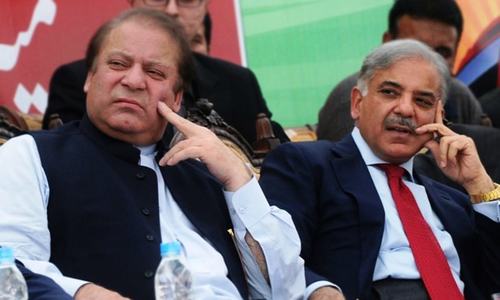ISLAMABAD: Without naming names, the auditor general of Pakistan (AGP) has found faults with the design of the controversial Nandipur Power Project (NPP) and the decision-making of its management, board of directors and the Ministry of Water and Power.
In the conclusion of an audit report, compiled on the orders of the prime minister, the AGP noted that the post of managing director was specially created for an officer and a low-capacity fuel oil treatment plan was installed.
The AGP also noted that the final cost of the project was still within the approved limits of Rs58 billion. It did not report, however, that a revised cost estimate of Rs65bn was submitted to the National Electric Power Regulatory Authority (Nepra) early last month for inclusion in tariff setting.
Take a look: Sound and fury over Nandipur come to naught
“[A] timely decision on operation and management (O&M) was not taken. Project has yet to be converted from residual fuel oil to natural gas although it is included in the revised PC-1,” the AGP said. “The question of whether to outsource O&M of the power plant or do it in-house is presently at the heart of the current problems afflicting the project,” it added.
Delayed decisions on foreign credit, interest accumulation cited for cost increase
The AGP said the main reason for the cost increase of Rs36 billion in the revised PC-1 was the delay in the provision of the law ministry’s opinion on foreign credit facilities, which could not be utilised for the timely clearance of plant equipment from ports.
Also read: Nandipur power project well within estimated cost, says Khawaja Asif
It said that other reasons for the cost increase included the payment of US$67 million on account of additional engineering, procurement and construction costs. This was incurred under remobilisation compensation on account of extension of time and for the inspection, repacking, testing and repair of the plant through Amendment No. 2 to the contract agreement signed on August 2, 2013.
Another abnormal increase of around Rs11 billion was due to interest accumulated during the construction process, 25 per cent additional overhead rates, demurrage and detention charges and the non-quoting of rates of essential bill of quantities items by the contractors.
The actual quantum spent on the project as of August 31, 2015 was Rs49.912 billion, said the AGP. It noted pending liabilities amounting to US$ 9.559 million, Euro 0.391 million and Pak Rs521.027 million in respect of the contractor, an amount of US$25 million for conversion of project from residual fuel oil to gas fuel and an amount of Rs3.97 billion for laying a gas pipeline for the project, which will still remain within the approved cost of revised PC-1.
It said the project management wanted to outsource O&M, whereas the board of GENCO-III was extremely reluctant to accede to their repeated requests in this regard. At the same time, it did not issue any clear-cut orders to carry out O&M through staff trained for this purpose.
The AGP said the actual expenditure of the project was Rs49.912 billion, while the final estimated cost was Rs58.416 billion.
The AGP recommended that the issue of the O&M contract be resolved as soon as possible. “Any decision to outsource O&M or to do it in-house should be based on a detailed cost-benefit analysis of the two options as was repeatedly sought by the GENCO-III board of directors from the project management,” the AGP said. If O&M outsourcing is found to be a better option, then there must be an explicit approval from the highest forum.
It also recommended that those responsible for causing unnecessary delays at the early stages of project and ultimately causing huge cost escalation should be identified and prosecuted. Similarly, those who were responsible for non-compliance with the rules and contractual obligations in their decisions during project planning and execution should be proceeded against.
It also recommended that the capacity of the furnace oil treatment plant be raised to the level guaranteed in the contract agreement and that the plant be converted from furnace oil to natural gas as soon as possible.
A government-owned firm – Northern Power Generation Company Limited – in its regulatory filing had sought increase in the project cost to Rs65.35 billion, but Nepra is yet to give its determination on the request.
Published in Dawn, November 19th, 2015















































